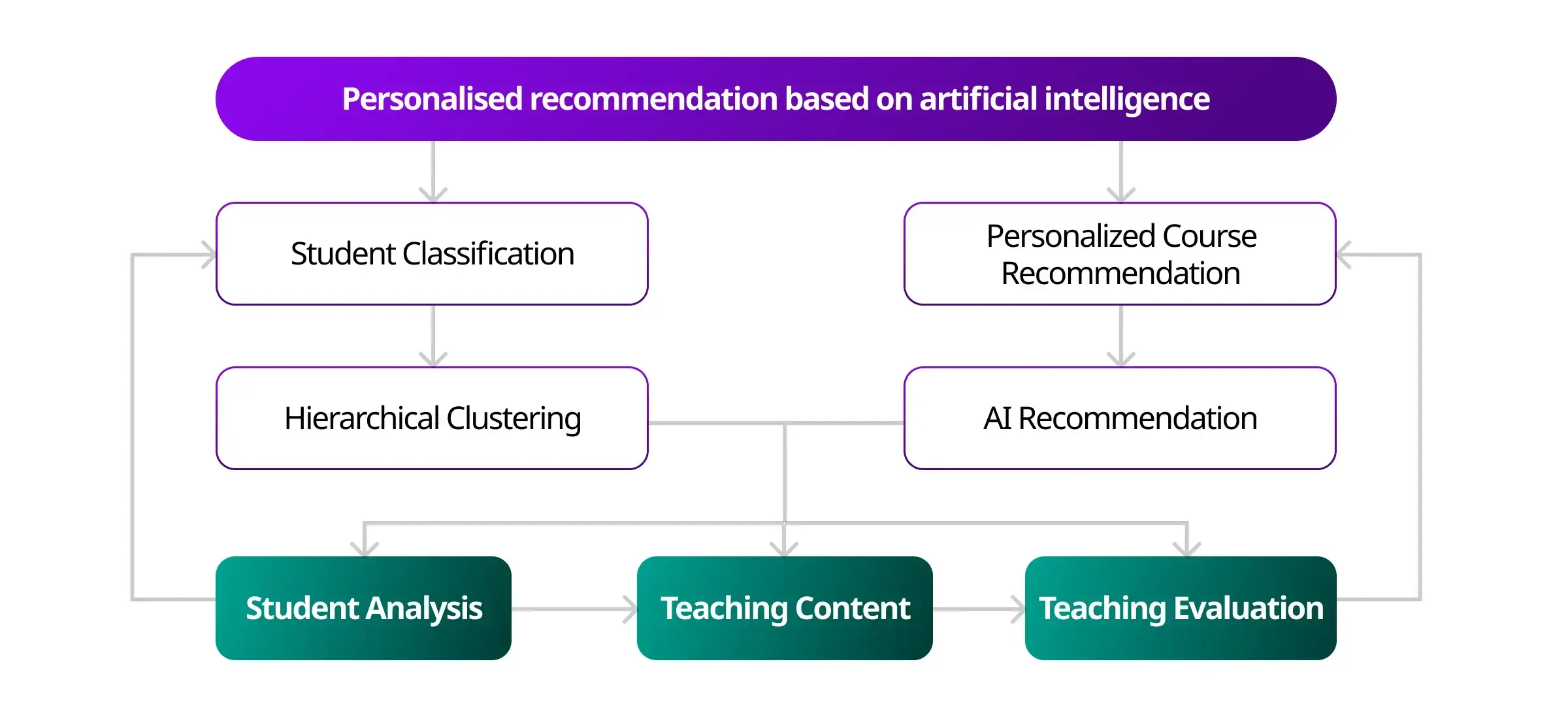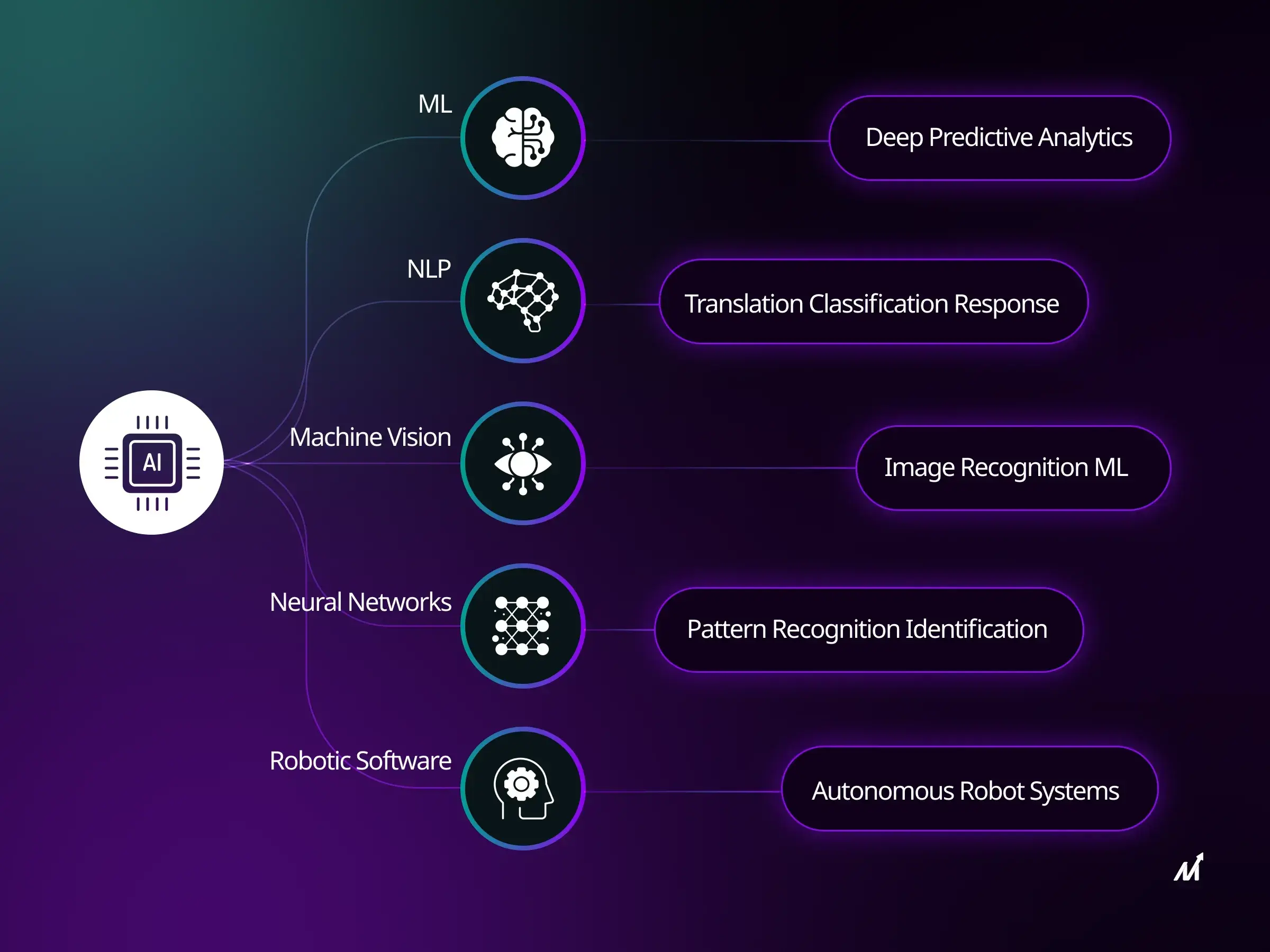Artificial Intelligence (AI) is at the cusp of a new era with the emergence of next-generation AI systems, also known as Next-Gen AI. These systems represent a significant advancement in AI, characterized by innovative features and capabilities set to revolutionize various industries and aspects of life. In this blog, we will explore the critical characteristics of Next-Gen AI systems, their applications, a real-world example, and the impact of Next-Gen AI systems on enterprises across industries.
Imagine AI systems that understand language nuances and make decisions autonomously, tailoring experiences to individual needs while safeguarding privacy. That’s the promise of Next Gen AI. According to recent studies, the global AI market is projected to reach a staggering $190.61 billion by 2025, propelled by advancements in machine learning, natural language processing, and personalized algorithms.
What Are Next-Generation AI Systems?
Next-generation AI systems are advanced AI technologies designed to surpass the limitations of current AI models. Enhanced learning algorithms, improved language processing, personalized applications, data-driven decision-making, and privacy-preserving techniques characterize them. These systems are designed to be more dynamic, responsive, and capable of addressing complex challenges across different domains.
Critical Characteristics of Next-Gen AI Systems
Progressive Language Processing
Next-gen AI systems exhibit advanced language processing competencies, enabling them to understand and respond to human language in a nuanced and contextually relevant manner. These systems leverage sophisticated natural language processing (NLP) techniques to comprehend context, detect sentiment, and engage in meaningful conversations. This capability is crucial for applications such as customer service chatbots, virtual assistants, and language translation services.
Advanced Learning Algorithms
A hallmark of Next Gen AI is incorporating advanced learning algorithms that continuously improve and adapt based on up-to-date knowledge and interactions. These algorithms include:
- Deep Learning: Utilizing complex neural networks with multiple layers to learn from vast data.
- Reinforcement Learning: Enabling systems to learn from interactions with their environment and optimize their behavior.
- Transfer Learning: Allowing models to apply knowledge gained from one task to new, related tasks.
These learning algorithms make Next Gen AI systems more dynamic and capable of evolving, enhancing their performance and applicability.
Personalized Education

In education, Next-Generation AI can provide tailored suggestions and directions to enhance students’ learning experiences. By analyzing students’ learning styles, preferences, and progress, AI systems can create personalized learning paths, recommend resources, and offer real-time feedback. This personalized approach helps address individual learning needs and improve educational outcomes.
Data-Driven Decision Making
Businesses can significantly benefit from Next Gen AI through data-driven decision-making. These AI systems analyze vast amounts of data to generate actionable insights, leading to increased efficiency, cost savings, and competitive advantage. AI can assist in strategic planning, marketing, supply chain management, and more by identifying patterns, trends, and correlations within data.
Privacy-Preserving AI
With growing concerns about data privacy, Next Gen AI incorporates privacy-preserving techniques such as federated learning. Federated learning enables AI models to learn from distributed datasets without compromising individual privacy. This approach allows organizations to leverage valuable data insights while ensuring compliance with data protection regulations and maintaining user trust.
Real-World Example: Google’s Duplex

A notable real-world example of a next-generation AI system is Google’s Duplex, an AI-powered conversational agent designed to perform specific tasks via natural language interactions. Here’s an overview of its capabilities and impact:
Google’s Duplex is an AI system developed by Google that represents a significant leap in AI assistant technology. It excels in conducting natural conversations and completing tasks over the phone. With human-like speech and contextual understanding capabilities, Duplex seamlessly handles specific tasks like making reservations and scheduling appointments. Its adaptive learning enables continuous improvement, allowing it to adapt to various accents and speech patterns. Google prioritizes privacy and transparency, ensuring users are informed when interacting with Duplex and employing privacy-preserving techniques to safeguard user data.
Impact of Next-Gen AI Systems on Enterprises
Next-generation AI systems are poised to revolutionize enterprises across industries, offering many benefits that drive efficiency, innovation, and competitive advantage. Here’s how Next Gen AI is reshaping the landscape for businesses:
Enhanced Decision Making:
Next-generation AI equips enterprises with the tools to make data-driven decisions swiftly and accurately. By analyzing vast datasets in real time, AI systems uncover actionable insights that inform strategic initiatives, optimize operations, and drive business growth.
Improved Customer Experiences:
With advanced natural language processing and personalized algorithms, Next Gen AI enables enterprises to deliver unparalleled customer experiences. From responsive chatbots to tailored recommendations, AI systems engage customers at every touchpoint, fostering loyalty and satisfaction.
Streamlined Operations:
Next-gen AI automates repetitive tasks, streamlining workflows and freeing up human resources to focus on high-value activities. Enterprises can achieve greater efficiency and productivity across departments by optimizing processes and reducing manual intervention.
Enhanced Security:
AI-powered cybersecurity systems provide enterprises with proactive threat detection and response capabilities. By analyzing patterns and anomalies in network traffic, AI systems fortify defenses, safeguarding sensitive data and mitigating cyber risks.
Accelerated Innovation:
Next-gen AI fuels innovation by enabling enterprises to experiment with new ideas, products, and services. From predictive analytics to autonomous systems, AI-driven innovation fosters agility and adaptability, positioning enterprises at the forefront of industry disruption.
Personalized Marketing:
AI-driven marketing platforms leverage consumer data to deliver hyper-targeted campaigns and personalized experiences. By understanding individual preferences and behaviors, enterprises can optimize marketing strategies, maximize ROI, and drive customer engagement.
Agile Supply Chain Management:
Next-Gen AI optimizes supply chain operations by forecasting demand, optimizing inventory levels, and mitigating disruptions. By harnessing predictive analytics and machine learning, enterprises can build resilient supply chains that adapt to changing market conditions.
Compliance and Risk Management:
AI-powered compliance and risk management systems give enterprises real-time insights into regulatory requirements and potential risks. By automating compliance processes and identifying emerging threats, AI systems help enterprises maintain regulatory compliance and mitigate operational risks.
In summary, Next-Generation AI00 systems have a transformative impact on enterprises, empowering them to make smarter decisions, deliver superior customer experiences, streamline operations, enhance security, foster innovation, personalize marketing efforts, optimize supply chains, and manage compliance and risk effectively. Consequently, by embracing Next-Generation AI, enterprises can unlock new opportunities for growth, competitiveness, and success in the digital age.
Applications of Next-Gen AI in Various Industries
Healthcare
In healthcare, Next Gen AI is driving breakthroughs in medical diagnostics, personalized medicine, and predictive analytics. AI-powered diagnostic tools can analyze medical images with high accuracy, while personalized treatment plans can be developed based on individual patient data.
Autonomous Systems
Next-gen AI is advancing autonomous systems, including self-driving cars, drones, and robotics. These systems can navigate complex environments, make real-time decisions, and perform highly precise and reliable tasks.
Finance
Next-gen AI enhances predictive analytics, fraud detection, and customer service in the financial sector. AI algorithms can analyze market trends, detect suspicious activities, and provide personalized financial advice.
Creative Industries
Next-Gen AI is transforming creative industries by enabling AI-generated art, music, and content creation. These systems can assist artists and creators in exploring new styles and producing innovative works.
The Future of Next-Gen AI: Opportunities and Challenges
Opportunities
The opportunities presented by Next Gen AI are vast. Businesses can achieve unprecedented efficiency, innovation, and growth by leveraging advanced AI capabilities. Improved decision-making, personalized customer experiences, and enhanced operational efficiency are just a few of the benefits that AI can bring.
Challenges
However, the adoption of Next-Generation AI also comes with challenges. Technical limitations, ethical dilemmas, and the need for interdisciplinary collaboration are significant hurdles. Ensuring AI fairness, reducing bias, and addressing data privacy concerns are critical issues that need to be addressed to fully realize the potential of Next-Generation AI.
How Markovate Can Help Build Next-Gen AI Systems for Businesses
Markovate, an AI solutions development company, stands ready to propel businesses into the era of Next-Gen AI with a comprehensive suite of services tailored to their unique needs.
By leveraging cutting-edge algorithms and technologies, we craft custom AI solutions to address specific business challenges and capitalize on emerging opportunities. Furthermore, through consultation and strategic planning, Markovate helps businesses identify AI possibilities, define project objectives, and chart a clear path for implementation. By seamlessly integrating data analytics into AI systems, our team unlocks the power of data for informed decision-making and actionable insights.
With a steadfast commitment to privacy and security, we ensure that sensitive data is safeguarded and regulatory compliance is upheld throughout the AI development. Moreover, Markovate prioritizes continuous improvement, incorporating feedback and updates to enhance AI system performance and deliver unparalleled value to businesses.
Conclusion
Next-generation AI systems, exemplified by Google Duplex and other advanced technologies, are poised to revolutionize industries and enterprises, driving efficiency, innovation, and growth. Moreover, with Markovate’s expertise in AI solutions development, businesses can harness the power of next-gen AI to gain a competitive edge, optimize operations, and deliver superior customer experiences.


I’m Rajeev Sharma, Co-Founder and CEO of Markovate, an innovative digital product development firm with a focus on AI and Machine Learning. With over a decade in the field, I’ve led key projects for major players like AT&T and IBM, specializing in mobile app development, UX design, and end-to-end product creation. Armed with a Bachelor’s Degree in Computer Science and Scrum Alliance certifications, I continue to drive technological excellence in today’s fast-paced digital landscape.





















Discussion about this post